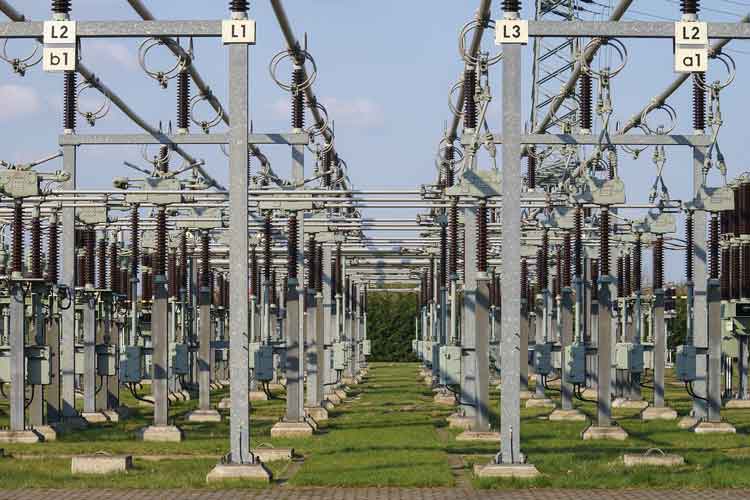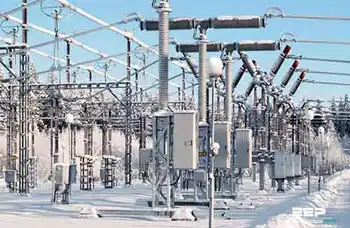Senate panel OKs updated U.S. electric grid
WASHINGTON, DC - The Senate Energy Committee on Wednesday approved a rewrite of U.S. electricity rules as it finished work on a broad bill that attempts the first major U.S. energy policy overhaul in a decade.
But in a setback to competitive wholesale electric markets, the bill's electricity portion rejected a sweeping effort by the Federal Energy Regulatory Commission to restructure the transmission grid. Electricity legislation proposed by Sen. Pete Domenici, the panel's Republican chairman, would return the revised FERC rules back to the commission and bar it from finalizing any related plan until July 2005. The energy bill passed 13-10. FERC last year proposed its so-called "standard market design" to encourage U.S. utilities to combine their patchwork transmission systems into super-regional grids, and aimed to finalize the rules later this year. The bill passed by the panel rejected a revised version of the rules released by FERC on Monday, and remanded them back to the agency for reconsideration. "The dream of nationally standardized competitive markets looks dead," said Schwab Capital Markets analyst Christine Tezak. "Congress clearly doesn't have the stomach for it." The bill is expected to be sent to the full Senate for debate next week, but differences with a House energy bill would have to be reconciled before President George W. Bush can sign a final measure into law. It includes tax incentives to expand production from wind, solar and geothermal facilities, as well as traditional oil, natural gas and nuclear energy sources. As written, the Senate bill is in some ways most notable for what it does not include -- oil drilling in an Alaskan wildlife refuge, automobile fuel-efficiency standards, ethanol production incentives and climate change standards. Some of those items may be inserted in the bill when the full Senate debates it. But Alaska drilling, which is included in the energy bill passed by the House of Representatives, is unlikely to be included in the Senate version. When the energy bill reaches the Senate floor, senators are expected to debate a proposal to double the production of ethanol-blended gasoline to 5 billion gallons a year by 2012. The fuel burns more cleanly than conventional gasoline and is favored by farm-state lawmakers hoping to expand the domestic market for corn, a basic ingredient of ethanol.
FERC FACES REGIONAL PROTESTS
FERC's grid proposal drew a firestorm of protest from Southern and Western states, who viewed it as a federal power grab and warned their rates could rise if it is enacted. To defuse the criticism, FERC on Monday issued a "white paper" on the rules which changed its proposal to make major concessions to bring objecting states on board. Sen. Pete Domenici, the panel's Republican chairman, told reporters that FERC's white paper "was not clear enough to be helpful" and raised more concerns than it allayed. FERC Chairman Pat Wood "didn't help us if you're talking about position change," Domenici said. "He made it such that something had to be done." The U.S. Energy Department has delayed releasing its own congressionally mandated study of FERC's rules, which had been expected on Wednesday. Sen. Jeff Bingaman of New Mexico, the panel's senior Democrat, said the bill as passed ties FERC's hands to prevent a repeat of the power shortages that crippled California and other Western states in 2000 and 2001. "I would not want to leave FERC without the authority to respond to high prices," Bingaman said. The bill directs FERC to study regional power grid differences, and to issue a report to Congress a year after the bill is enacted. "In terms of progress toward competitive wholesale markets it is a setback in places that don't have them" such as the Southeast and West, said Elizabeth Moler, a vice president for Exelon Corp. . The delay would not affect the utility's business because it already plans to join a mid-Atlantic grid group, Moler said.
Related News

Experts Question Quebec's Push for EV Dominance
MONTREAL - Quebec's ambitious push to dominate the electric vehicle (EV) market by setting a target of two million EVs on the road by 2030 and planning to ban the sale of new gas-powered vehicles by 2035 has sparked significant debate among industry experts. While the government's objectives aim to reduce greenhouse gas emissions and promote sustainable transportation, some experts question the feasibility and potential economic impacts of such rapid transitions.
Current Landscape of Gas Stations in Quebec
Contrary to Environment Minister Benoit Charette's assertion that gas stations may become scarce within the next decade, industry experts suggest that the…




